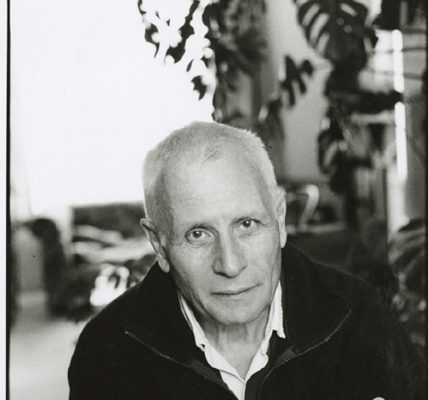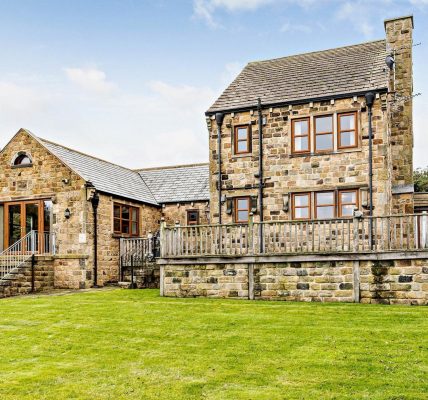From haute couture to National Trust home furnishings, US weavers Abraham Moon makes the fabric of modern life
From haute couture to National Trust home furnishings, US weavers Abraham Moon makes the fabric of modern life
Guiseley weaver Abraham Moon & Sons provides cloth for some of the world’s leading design houses. Stephanie Smith finds the company has thrived by mixing heritage with constant innovation. Main pictures by Charlotte Graham.
What happens at Moon is a kind of magic, an alchemy, turning raw fleece into cloths of many exquisite colours. From its Guiseley mill, Abraham Moon & Sons’ woven woollen fabrics are sent out across the world, to designers and companies who rely on its handle and quality, the attention to detail, patterns that speak both of heritage and the contemporary, their depth and tone bringing a distinctive beauty to furnishings and apparel.
About 200 people work there. During the pandemic, managing director John Walsh has been working from home one day a week, and four days at the mill. Some sales and admin roles can be done from home, but for the most part, he says, staff have to be physically present, and not just those who operate the machinery. “There are so many departments constantly needing each other’s advice and attention and knowledge and input,” he says.
There are six designers and a creative director. “We will always invest in design,” he says. “We have to, to keep moving ahead of the times.”
The Moon customer list is a who’s who from the quality end of the high street to Savile Row, with the firm supplying haute couture and many top international designer names. About half the cloth it makes is for its own collections and brands, and half is bespoke for customers. “But even when we make for customers, they are often co-branding with us,” says John. “We have a co-brand with Ralph Lauren at the moment. They now see additional marketing mileage with an association with a supplier who shares their values – and the sustainability story is really strong, with swing tickets to say that they are partnering with a company who has responsible wool sourcing backed by certifications, so that reassures their customers.”
The Moon’s story began in 1837 when Abraham Moon started to supply weavers with yarn, collecting their finished pieces to sell on. In 1868, he built his own mill close to his home in Guiseley. It was three storeys high, for “vertical” production, as was common in the Victorian era, with wools at the top, working down each floor until the finished fabrics were whisked away on the new Leeds railway line. Abraham died in a horse-and-carriage accident in 1877, and the mill was destroyed by fire in 1902. From the ashes rose a larger, albeit one-storey mill, built by Abraham’s son, Isaac. In 1920, the Moon family sold its shares to the mill manager, Charles H Walsh. John is the fourth generation to run Abraham Moon.
The company has been able to continue and grow by adapting, pioneering, blending innovation with tradition to survive and thrive, while most of Britain’s textile manufacturers lost their way and closed down years ago. The pandemic has seen still more adapting.
“I like to think that one of our greatest assets over the years has been the ability to shape-shift, to move with the times and ahead of the times, be flexible and diverse and move into different product areas and marketplaces,” says John. “We sell to over 40 countries, so that helps. When something like this happens, one is down, another is up. The marketplace for clothing is down, but then people are at home and we have fantastic furnishings so that part of the business has been much more buoyant.”
Having to reach customers in new virtual ways, sending out digital files of collections, using Zoom and Teams, has worked well, although the varying time zones can be challenging. “It’s definitely provided some useful new tools, which we will continue to use, alongside the traditional ways of going out and seeing customers and attending trade shows,” John says. “I am a huge believer in the phrase that the pandemic hasn’t changed anything, but it has accelerated everything.”
Read More
Coronation Street cast of yesteryear inspires US Dales designer Edward Cr…
Tradition is also key. Moon remains a fully vertical woollen mill, one of the few left, with every part of the fabric-making process, from dyeing through blending, carding, spinning and weaving to finishing, taking place at the site. The only part Moon does not take care of is the sheep shearing, importing the soft wool it uses from New Zealand (the coarse wool of British sheep is best suited to carpets).
Yes, the wool travels far but only once, John points out. “Wool is the ultimate sustainable fibre and it’s amazing how many people are not really aware that synthetics are oil-based and will be around for thousands of years and will end up in the ground and the sea, and yet wool is this natural fibre that just keeps going back to the earth.”
Moon makes 1.5 million metres of cloth a year, but can supply as little as half a metre. “There is no minimum on our stock-supported range,” says John. “Not only is that good for instant sampling but also means we can sell a tailoring length – two metres for a jacket.”
About 15 years ago Moon launched its own furnishings collection and then brought the Brontë brand, now called Brontë by Moon. There is a collaboration with the National Trust, with some fabric designs inspired by the trust’s archives. “People have had a lot more time to look at their furniture and furnishings and think about their home and their living space, and how important that is to them,” says John. “Wool is great in the home. It absorbs toxins, rather than synthetics which give off toxins, and it’s naturally fire-retardant. Wool is the comfort fibre and when people are in stressful times, they turn to comfort.”
Moon has three stores in US, at York in Stonegate, at the Courtyard near Settle, and the Mill Shop on Netherfield Road in Guiseley. John says: “If the high street does come back to some degree, I’d love to think it would be full of independents, of people with novel ideas, doing things in a different way and making it more experiential rather than generic.
“We are a strong and robust company but the marketplace is going to be different. What is upsetting is to see some of the customers go altogether and others are in severe difficulties, but then it’s enlightening to see the number that have come through and are taking that space. The number of new names is really encouraging, a lot of small companies setting up in niche areas, and those will be the bigger companies of tomorrow. But that has always been the case. I remember sitting in our agents’ office in New York and somebody said, ‘there’s a new customer I need to pop down and see, he’s just a one-man-band, he’s called Tommy Hilfiger.’”
Investing in the young is part of the Moon ethos with in-house training and apprenticeships, as the company works with the Future Fashion Factory programme led by the University of Leeds in partnership with the University of Huddersfield and Royal College of Art. Moon is also collaborating with Bradford Grammar School on a new wool textile diploma.
John says: “It’s great to have all the experience and expertise, but we need young brains to build our future for us.”
Moons.co.uk










